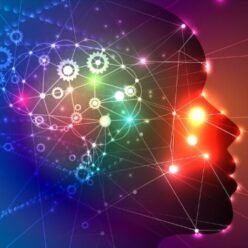Biomedical researchers have found that music is a highly structured auditory language involving complex perception, cognition, and motor control in the brain, and thus it can effectively be used to retrain and reeducate the injured brain. There is also increasing evidence in rehabilitation medicine and the field of neuroscience that art enhances brain function by impacting brain wave patterns, emotions, and the nervous system. Art can also raise serotonin levels. These benefits don’t just come from making art, they also occur by experiencing art, which can help the injured brain.
It is commonly known that brain injury may lead to hormonal changes and biological changes in the brain. In response, the process of brain repair, healing, and recovery begin. This may include rewiring and establishing new pathways. Research has shown that music can help by activating cognitive, motor, and speech centers in the brain through accessing shared neural systems. Also, art as another form of therapy has helped people with brain injury to improve fine motor skills, concentration, and attention while relieving symptoms of stress and depression.
Here are some helpful links:
